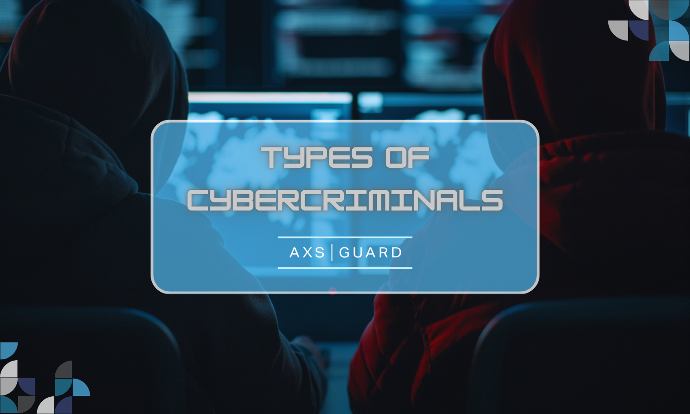

Understanding your enemy is the first step in defeating them. While cyber threats are diverse, the perpetrators behind them are not a homogenous group.
Let's delve into the different types of cybercriminals, each with their unique motivations and tactics.
Different types of cybercriminals
1. Scriptkiddies
Inexperienced attackers who use readily available tools and scripts to exploit vulnerabilities. Often driven by curiosity or a desire to prove themselves, they lack in-depth technical knowledge and typically target low-hanging fruit like websites.
2. Hacktivists and Cyberterrorists
Motivated by political or social causes, hacktivists employ tactics like DDoS attacks and website defacement to promote their agendas or to make a statement.
Cyberterrorists, a more extreme subset, aim to inflict fear and damage critical infrastructure through cyberattacks to achieve political or religious objectives.
3. Nation-State Actors / State-Sponsored Hackers
Highly skilled cyber operatives employed by governments to achieve geopolitical objectives. These actors infiltrate foreign networks, steal sensitive information, and disrupt critical infrastructure to gain a strategic advantage.
4. ‘Traditional’ Cybercriminals
Primarily motivated by financial gain, these criminals employ a range of tactics to steal money or personal information.
Cyber Thieves: Focus on financial institutions and individuals, using methods like phishing, identity theft, and credit card fraud.
Cyber Vandals: Differ from other cybercriminals by prioritizing vandalism and notoriety over financial profit. They target systems and data for destructive purposes.
5. Industrial Spies
These cybercriminals target corporate networks to steal valuable intellectual property, including product designs, business plans, and customer data. Their primary goal is to provide a competitive advantage to their employers or clients.
6. Black Hat Hackers
These malicious actors illegally exploit system vulnerabilities to steal data, often for financial gain. They operate within a subculture that prizes technical skill and notoriety. While some sell stolen data on the dark web, others may be motivated solely by the challenge and recognition within the hacking community.
Grey Hat Hackers: Operating in a legal and ethical grey area, grey hat hackers access systems without permission but typically do so with good intentions. They often expose vulnerabilities to system owners but may not always follow proper disclosure procedures.
By understanding the diverse landscape of cybercriminals, organizations, cybersecurity firms, and governments can develop tailored strategies to mitigate specific threats.
It's important to note that not all individuals with hacking skills are malicious. White Hat Hackers (Ethical Hackers) are security professionals who use their abilities legally to identify and address vulnerabilities. They often partner with organizations to conduct penetration testing and security audits, enhancing overall system resilience.
» Blog: Most common cyberthreats

Who's hacking you? A guide to cybercriminals